 Tìm kiếm
Tìm kiếm
Chương IV Luật người khuyết tật 2010: Giáo dục
| Số hiệu: | 51/2010/QH12 | Loại văn bản: | Luật |
| Nơi ban hành: | Quốc hội | Người ký: | Nguyễn Phú Trọng |
| Ngày ban hành: | 17/06/2010 | Ngày hiệu lực: | 01/01/2011 |
| Ngày công báo: | 29/09/2010 | Số công báo: | Từ số 570 đến số 571 |
| Lĩnh vực: | Văn hóa - Xã hội | Tình trạng: | Còn hiệu lực |
TÓM TẮT VĂN BẢN
Văn bản tiếng việt
Văn bản tiếng anh
1. Nhà nước tạo điều kiện để người khuyết tật được học tập phù hợp với nhu cầu và khả năng của người khuyết tật.
2. Người khuyết tật được nhập học ở độ tuổi cao hơn so với độ tuổi quy định đối với giáo dục phổ thông; được ưu tiên trong tuyển sinh; được miễn, giảm một số môn học hoặc nội dung và hoạt động giáo dục mà khả năng của cá nhân không thể đáp ứng; được miễn, giảm học phí, chi phí đào tạo, các khoản đóng góp khác; được xét cấp học bổng, hỗ trợ phương tiện, đồ dùng học tập.
3. Người khuyết tật được cung cấp phương tiện, tài liệu hỗ trợ học tập dành riêng trong trường hợp cần thiết; người khuyết tật nghe, nói được học bằng ngôn ngữ ký hiệu; người khuyết tật nhìn được học bằng chữ nổi Braille theo chuẩn quốc gia.
4. Bộ trưởng Bộ Giáo dục và Đào tạo chủ trì phối hợp với Bộ trưởng Bộ Lao động - Thương binh và Xã hội, Bộ trưởng Bộ Tài chính quy định chi tiết khoản 2 Điều này.
1. Phương thức giáo dục người khuyết tật bao gồm giáo dục hòa nhập, giáo dục bán hòa nhập và giáo dục chuyên biệt.
2. Giáo dục hòa nhập là phương thức giáo dục chủ yếu đối với người khuyết tật.
Giáo dục bán hòa nhập và giáo dục chuyên biệt được thực hiện trong trường hợp chưa đủ điều kiện để người khuyết tật học tập theo phương thức giáo dục hòa nhập.
3. Người khuyết tật, cha, mẹ hoặc người giám hộ người khuyết tật lựa chọn phương thức giáo dục phù hợp với sự phát triển của cá nhân người khuyết tật. Gia đình có trách nhiệm tạo điều kiện và cơ hội thuận lợi để người khuyết tật được học tập và phát triển theo khả năng của cá nhân.
Nhà nước khuyến khích người khuyết tật tham gia học tập theo phương thức giáo dục hòa nhập.
1. Nhà giáo, cán bộ quản lý giáo dục tham gia giáo dục người khuyết tật, nhân viên hỗ trợ giáo dục người khuyết tật được đào tạo, bồi dưỡng cập nhật về chuyên môn, nghiệp vụ và kỹ năng đáp ứng nhu cầu giáo dục người khuyết tật.
2. Nhà giáo, cán bộ quản lý giáo dục tham gia giáo dục người khuyết tật, nhân viên hỗ trợ giáo dục người khuyết tật được hưởng chế độ phụ cấp và chính sách ưu đãi theo quy định của Chính phủ.
1. Bảo đảm các điều kiện dạy và học phù hợp đối với người khuyết tật, không được từ chối tiếp nhận người khuyết tật nhập học trái với quy định của pháp luật.
2. Thực hiện việc cải tạo, nâng cấp cơ sở vật chất dạy và học chưa bảo đảm điều kiện tiếp cận đối với người khuyết tật.
1. Trung tâm hỗ trợ phát triển giáo dục hòa nhập là cơ sở cung cấp nội dung chương trình, thiết bị, tài liệu dạy và học, các dịch vụ tư vấn, hỗ trợ giáo dục, tổ chức giáo dục phù hợp với đặc điểm và hoàn cảnh của người khuyết tật.
2. Trung tâm hỗ trợ phát triển giáo dục hòa nhập có nhiệm vụ sau đây:
a) Phát hiện khuyết tật để tư vấn lựa chọn phương thức giáo dục phù hợp;
b) Thực hiện biện pháp can thiệp sớm người khuyết tật tại cộng đồng để lựa chọn phương thức giáo dục phù hợp;
c) Tư vấn tâm lý, sức khỏe, giáo dục, hướng nghiệp để lựa chọn phương thức giáo dục phù hợp;
d) Hỗ trợ người khuyết tật tại gia đình, tại cơ sở giáo dục và cộng đồng;
đ) Cung cấp nội dung chương trình, thiết bị, tài liệu dạy và học đặc thù phù hợp với từng dạng tật, mức độ khuyết tật.
3. Việc thành lập và hoạt động của Trung tâm hỗ trợ phát triển giáo dục hòa nhập phải bảo đảm điều kiện sau đây:
a) Có cơ sở vật chất, phương tiện thiết bị và dịch vụ hỗ trợ phù hợp với đặc điểm của người khuyết tật;
b) Có đội ngũ cán bộ, giáo viên, nhân viên hỗ trợ giáo dục có trình độ chuyên môn phù hợp với các phương thức giáo dục người khuyết tật;
c) Có nội dung chương trình giáo dục, bồi dưỡng và tài liệu tư vấn phù hợp với các phương thức giáo dục người khuyết tật.
4. Chủ tịch Ủy ban nhân dân tỉnh, thành phố trực thuộc trung ương thành lập hoặc cho phép thành lập Trung tâm hỗ trợ phát triển giáo dục hòa nhập.
5. Bộ trưởng Bộ Giáo dục và Đào tạo chủ trì, phối hợp với Bộ trưởng Bộ Lao động - Thương binh và Xã hội quy định chi tiết điều kiện thành lập và hoạt động của Trung tâm hỗ trợ phát triển giáo dục hòa nhập quy định tại khoản 3 Điều này.
EDUCATION
Article 27. Education for persons with disabilities
The State shall create conditions for persons with disabilities to study in conformity with their own needs and capabilities.
Persons with disabilities may be admitted to school at ages higher than the ages prescribed for general education; are given priority in enrolment; are entitled to exemption from or reduction of certain study subjects or educational contents and activities beyond their personal capabilities and to exemption from or reduction of school fees, training expenses and other contributions: and are considered for provision of scholarships and learning equipment.
Persons with disabilities shall be provided with equipment and materials in support of their exclusive learning in case of necessity; persons with sensory disabilities may have their learning in sign language, persons with visual disabilities may have their learning in Braille under the national standards.
The Minister of Education and Training shall assume the prime responsibility for, and coordinate with the Minister of Labor, War Invalids and Social Affairs and the Minister of Finance in, detailing Clause 2 of this Article.
Article 28. Modes of education applicable to persons with disabilities
1. Education applicable to persons with disabilities includes integrative education, semi-integrative education and exclusive education.
2. Integrative education is the main mode of education for persons with disabilities.
Semi-integrative education and exclusive education will be implemented if conditions for persons with disabilities to study by integrative education are not yet fully met.
3. Persons with disabilities, their parents or guardians shall opt for modes of education suitable to the personal development of persons with disabilities. Families shall create favorable conditions and opportunities for their members with disabilities to study and develop according to their personal capabilities.
The State encourages persons with disabilities to learn by the mode of integrative education.
Article 29. Teachers. education administrators and education support personnel
1. Teachers and education administrators participating in the education of persons with disabilities and personnel supporting the education of persons with disabilities shall be trained and updated in profession and skills to meet the requirements of education of persons with disabilities.
2. Teachers and education administrators participating in the education of persons with disabilities and personnel supporting the education of persons with disabilities are entitled to allowances and incentives under the Government's regulations.
Article 30. Responsibilities of educational institutions
1. To ensure teaching and learning conditions suitable to persons with disabilities, to be disallowed to refuse admission of persons with disabilities in contravention of law.
2. To renovate and upgrade physical teaching and learning foundations which fail to meet the conditions on access by persons with disabilities.
Article 31. Integrative education development support centers
1. Integrative education development support centers are establishments which provide teaching and learning programs, equipment, documents as well as education consultancy services and support, or organize education, suitable to the characters and circumstances of persons with disabilities.
2. Integrative education development support centers have the following tasks:
a/ To detect disabilities so as to advise on the selection of appropriate modes of education;
b/ To take early intervention measures at communities so as to opt for appropriate modes of education for persons with disabilities:
c/ To provide psychological, health, educational and vocational consultancy in order to select appropriate modes of education;
d/ To support persons with disabilities in families, at educational institutions and communities;
e/ To provide peculiar teaching and learning programs, equipment and documents suitable to every form and degree of disability.
3. The establishment and operation of integrative education development support centers must satisfy the following conditions:
a/ Having material foundations, equipment and support services suitable to the characteristics of persons with disabilities:
b/ Having the contingent of cadres, teachers and education-supporting personnel with professional qualifications suitable to various modes of education applicable to persons with disabilities:
c/ Having education and retraining programs and counseling materials suitable to various modes of education applicable to persons with disabilities.
4. Chairpersons of provincial-level People's Committees shall establish or license the establishment of integrative education development support centers.
5. The Minister of Education and Training shall assume the prime responsibility for, and coordinate with the Minister of Labor, War Invalids and Social Affair in, specifying the conditions for establishment and operation of integrative education development support centers defined in Clause 3 of this Article.
Cập nhật
Bài viết liên quan
Đăng ký tạm trú online Hà Nội nhanh chóng và hiệu quả mới nhất năm 2025?
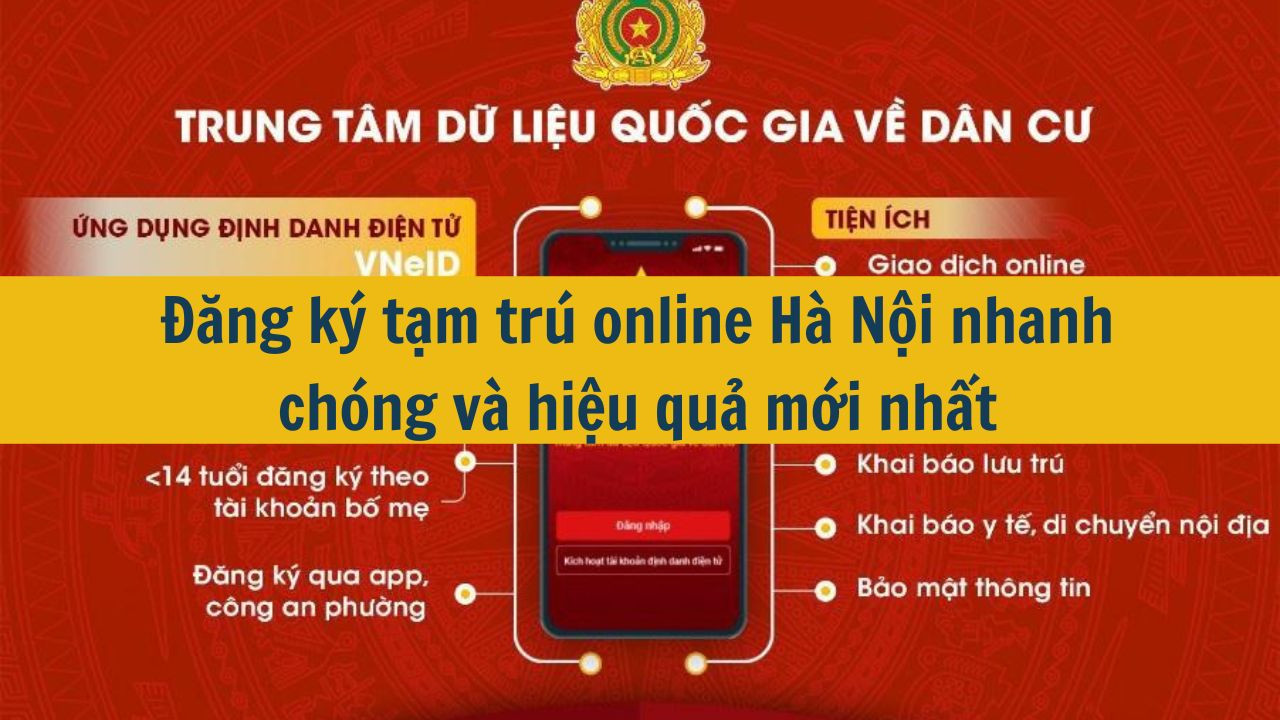
Đăng ký tạm trú online Hà Nội nhanh chóng và hiệu quả mới nhất năm 2025?
Đăng ký tạm trú online là thủ tục đăng ký tạm trú đang được người dân sử dụng ngày càng nhiều và phổ biến. Việc đăng ký tạm trú online giúp tiết kiệm thời gian, chi phí, công sức mà hiệu quả cao. Bài viết sau đây sẽ làm rõ về thủ tục đăng ký tạm trú online Hà Nội nhanh chóng và hiệu quả mới nhất năm 2025. 08/01/2025Đăng ký tạm trú online TP. HCM nhanh chóng và hiệu quả theo quy định mới nhất 2025?
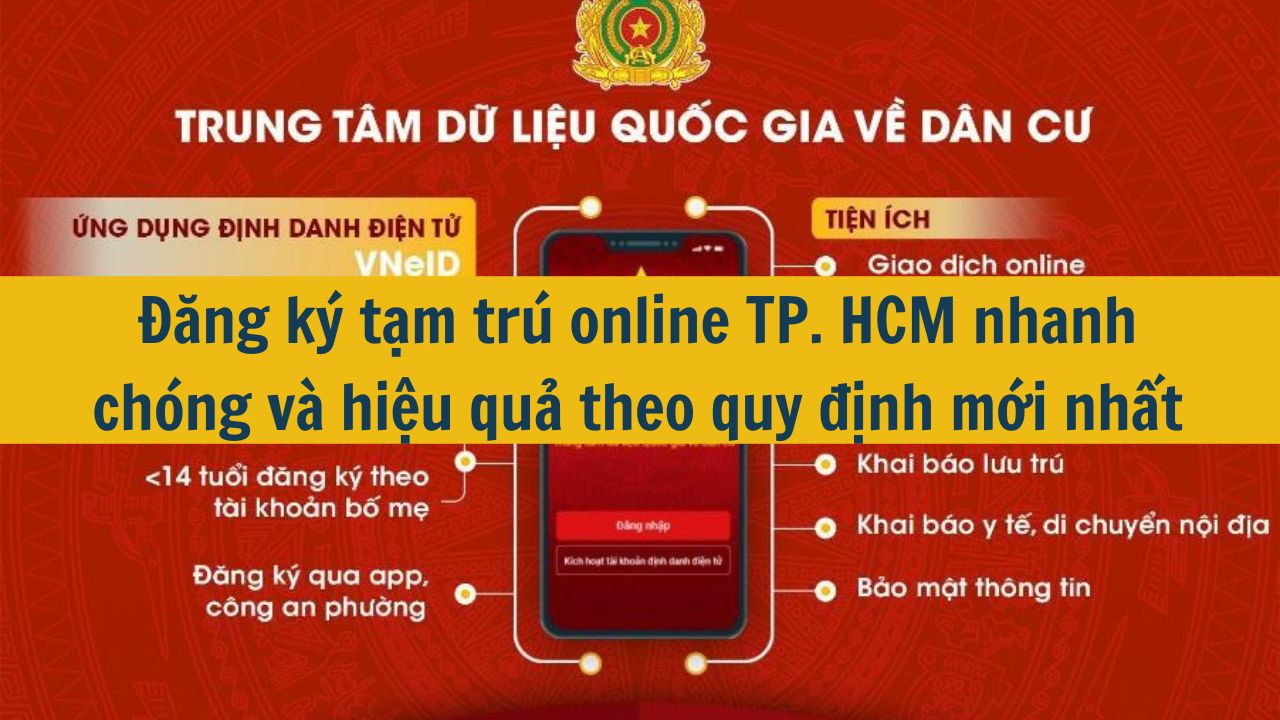
Đăng ký tạm trú online TP. HCM nhanh chóng và hiệu quả theo quy định mới nhất 2025?
Đăng ký hoặc khai báo tạm trú giúp bảo vệ người dân, đảm bảo tình hình an toàn xã hội, thuận tiện cho cơ quan chức năng trong việc quản lý dân cư và dữ liệu công dân. Các cá nhân phải tiến hành khai báo về cư trú đầy đủ và chính xác. Bài viết sau đây sẽ làm rõ về cách thức đăng ký tạm trú online TP. HCM nhanh chóng và hiệu quả theo quy định mới nhất 2025. 07/01/2025Nhập hộ khẩu bao lâu có kết quả mới nhất năm 2025?
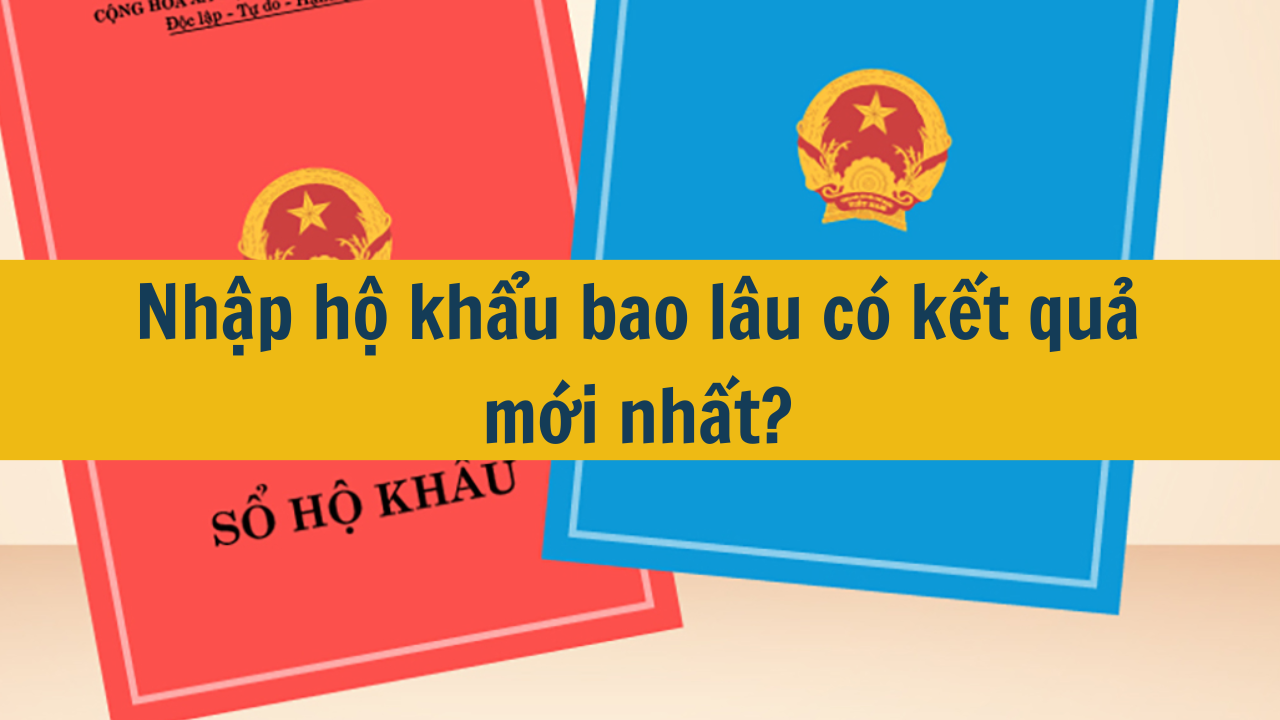
Nhập hộ khẩu bao lâu có kết quả mới nhất năm 2025?
Việc nhập hộ khẩu là một thủ tục hành chính quan trọng và cần thiết đối với công dân Việt Nam, giúp xác định nơi cư trú và quyền lợi của người dân. Tuy nhiên, nhiều người vẫn còn băn khoăn về thời gian xử lý hồ sơ nhập hộ khẩu và các yếu tố ảnh hưởng đến quá trình này. Trong bài viết này, chúng ta sẽ tìm hiểu về quy trình nhập hộ khẩu và thời gian bao lâu có kết quả mới nhất vào năm 2025, giúp bạn có cái nhìn rõ ràng hơn và chuẩn bị tốt hơn khi thực hiện thủ tục này. 27/12/2024Nhập hộ khẩu cần chuẩn bị những giấy tờ gì mới nhất năm 2025?
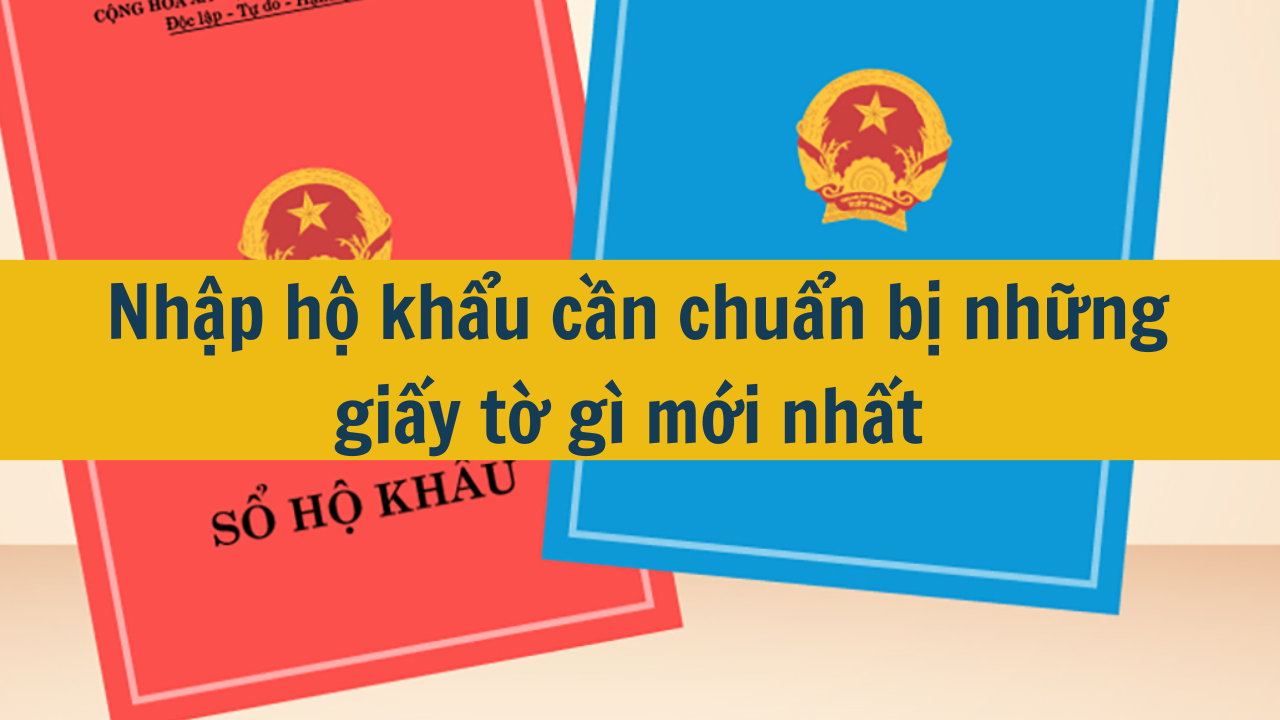
Nhập hộ khẩu cần chuẩn bị những giấy tờ gì mới nhất năm 2025?
Nhập hộ khẩu là một bước quan trọng trong việc xác định nơi cư trú và quyền lợi của mỗi công dân. Đặc biệt, năm 2025, các quy định về giấy tờ cần thiết để thực hiện thủ tục này đã có những cập nhật đáng chú ý. Trong bài viết này, chúng tôi sẽ hướng dẫn bạn về những giấy tờ mới nhất mà bạn cần chuẩn bị khi nhập hộ khẩu, giúp quá trình thực hiện trở nên nhanh chóng và thuận tiện hơn. Hãy cùng khám phá để đảm bảo bạn có đầy đủ thông tin và tài liệu cần thiết cho việc đăng ký hộ khẩu một cách suôn sẻ! 27/12/2024Điều kiện đăng ký hộ khẩu tại TP. HCM, Hà Nội mới nhất năm 2025
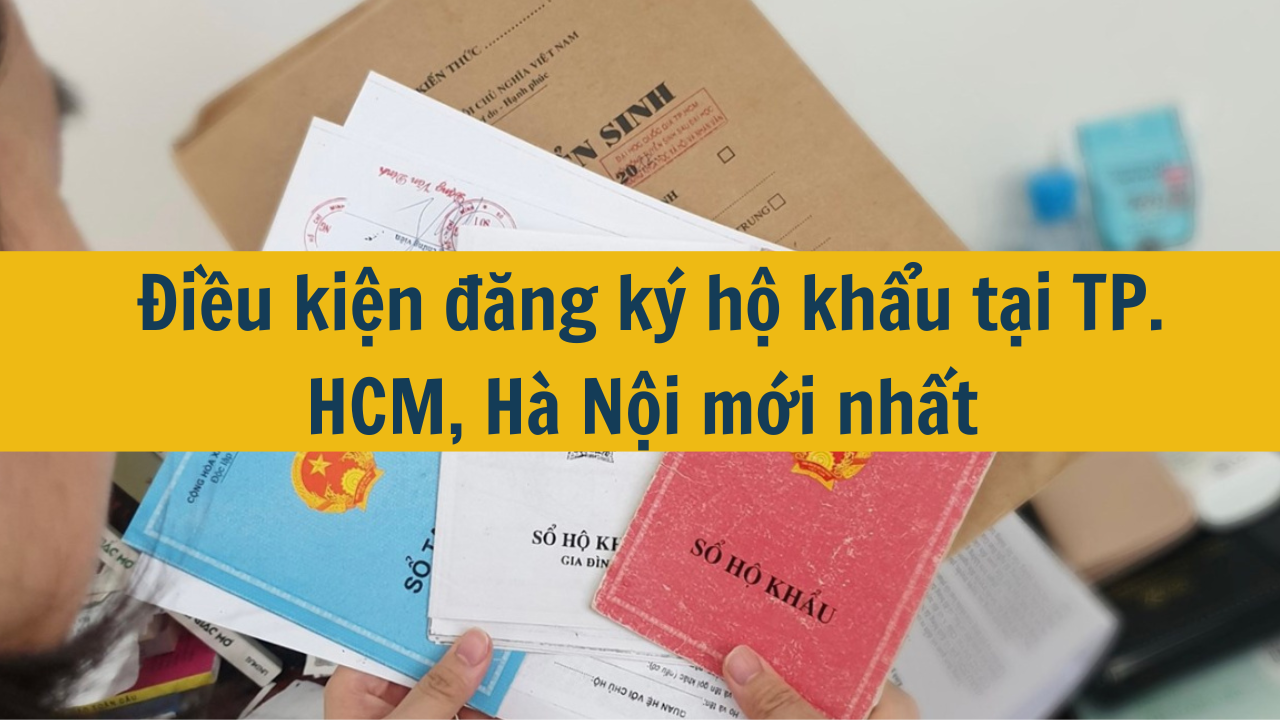
Điều kiện đăng ký hộ khẩu tại TP. HCM, Hà Nội mới nhất năm 2025
Đăng ký hộ khẩu là một trong những thủ tục quan trọng trong đời sống của mỗi công dân, đặc biệt tại những thành phố lớn như TP. HCM và Hà Nội. Năm 2025, quy định về điều kiện đăng ký hộ khẩu đã có nhiều thay đổi nhằm tạo điều kiện thuận lợi hơn cho người dân. Bài viết này sẽ cung cấp thông tin chi tiết về các điều kiện mới nhất để đăng ký hộ khẩu tại hai thành phố này, giúp bạn nắm rõ những yêu cầu cần thiết, từ giấy tờ đến quy trình thực hiện. Hãy cùng tìm hiểu để không bỏ lỡ cơ hội hưởng lợi từ những chính sách mới! 13/01/2025Hướng dẫn đăng ký nhập hộ khẩu online ngay tại nhà nhanh chóng năm 2025
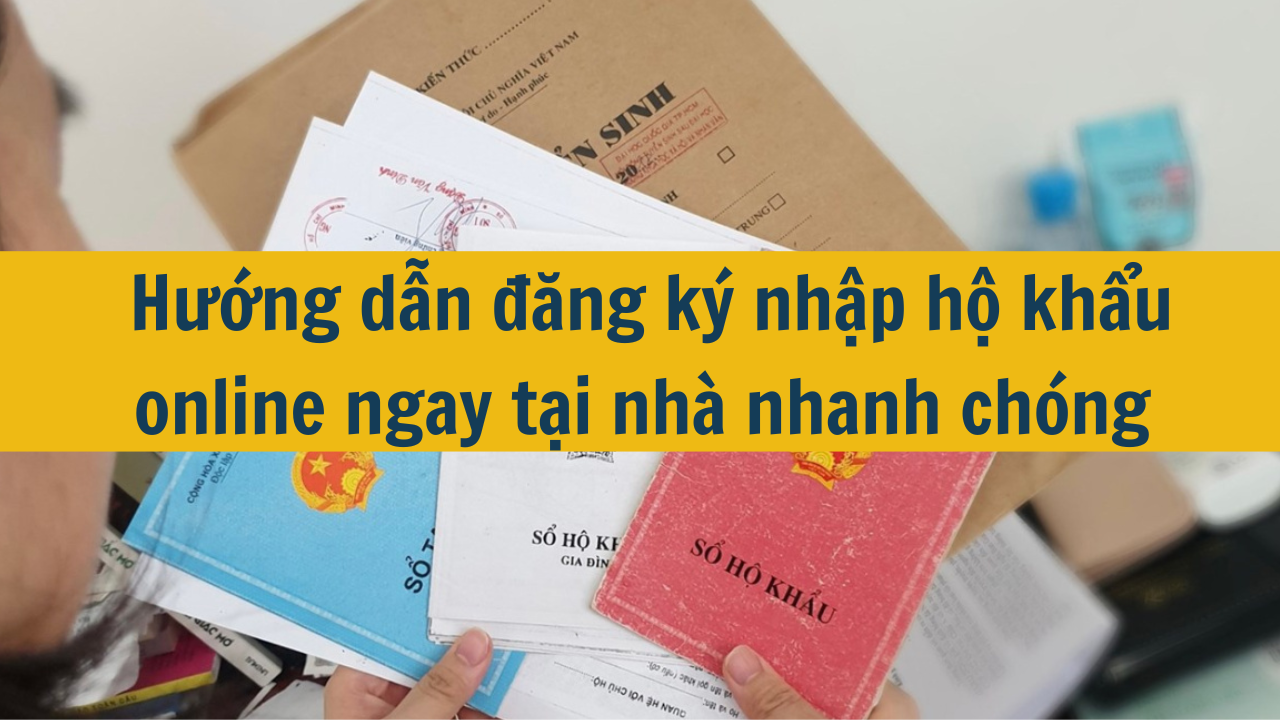
Hướng dẫn đăng ký nhập hộ khẩu online ngay tại nhà nhanh chóng năm 2025
Trong thời đại công nghệ 4.0, việc thực hiện các thủ tục hành chính trở nên dễ dàng và tiện lợi hơn bao giờ hết. Năm 2025, đăng ký nhập hộ khẩu online ngay tại nhà không chỉ giúp tiết kiệm thời gian mà còn giảm bớt những phiền phức khi phải đến trực tiếp cơ quan chức năng. Bài viết này sẽ hướng dẫn bạn từng bước để thực hiện thủ tục này một cách nhanh chóng và hiệu quả, giúp bạn nắm rõ quy trình và những lưu ý cần thiết để hoàn tất việc đăng ký hộ khẩu một cách suôn sẻ. Hãy cùng khám phá những tiện ích mà dịch vụ trực tuyến mang lại. 27/12/2024Nhập khẩu Hà Nội hết bao nhiêu tiền năm 2025?

Nhập khẩu Hà Nội hết bao nhiêu tiền năm 2025?
Việc nhập khẩu vào Hà Nội năm 2024 không có chi phí chính thức nào được quy định cho việc nộp hồ sơ đăng ký thường trú. Tuy nhiên, một số chi phí có thể phát sinh liên quan đến thủ tục hành chính và các giấy tờ cần thiết. Dưới đây là một số thông tin liên quan. 13/01/2025Hướng dẫn thủ tục nhập hộ khẩu Hà Nội, TP Hồ Chí Minh từ 01/7/2021

Hướng dẫn thủ tục nhập hộ khẩu Hà Nội, TP Hồ Chí Minh từ 01/7/2021
Từ ngày 01/7/2021, theo quy định của Luật Cư trú 2020, việc nhập hộ khẩu (đăng ký thường trú) tại Hà Nội và TP Hồ Chí Minh có một số điểm mới quan trọng. Dưới đây là hướng dẫn về thủ tục nhập hộ khẩu cho hai thành phố này. 13/01/202504 lưu ý khi sử dụng người lao động khuyết tật tại Việt Nam
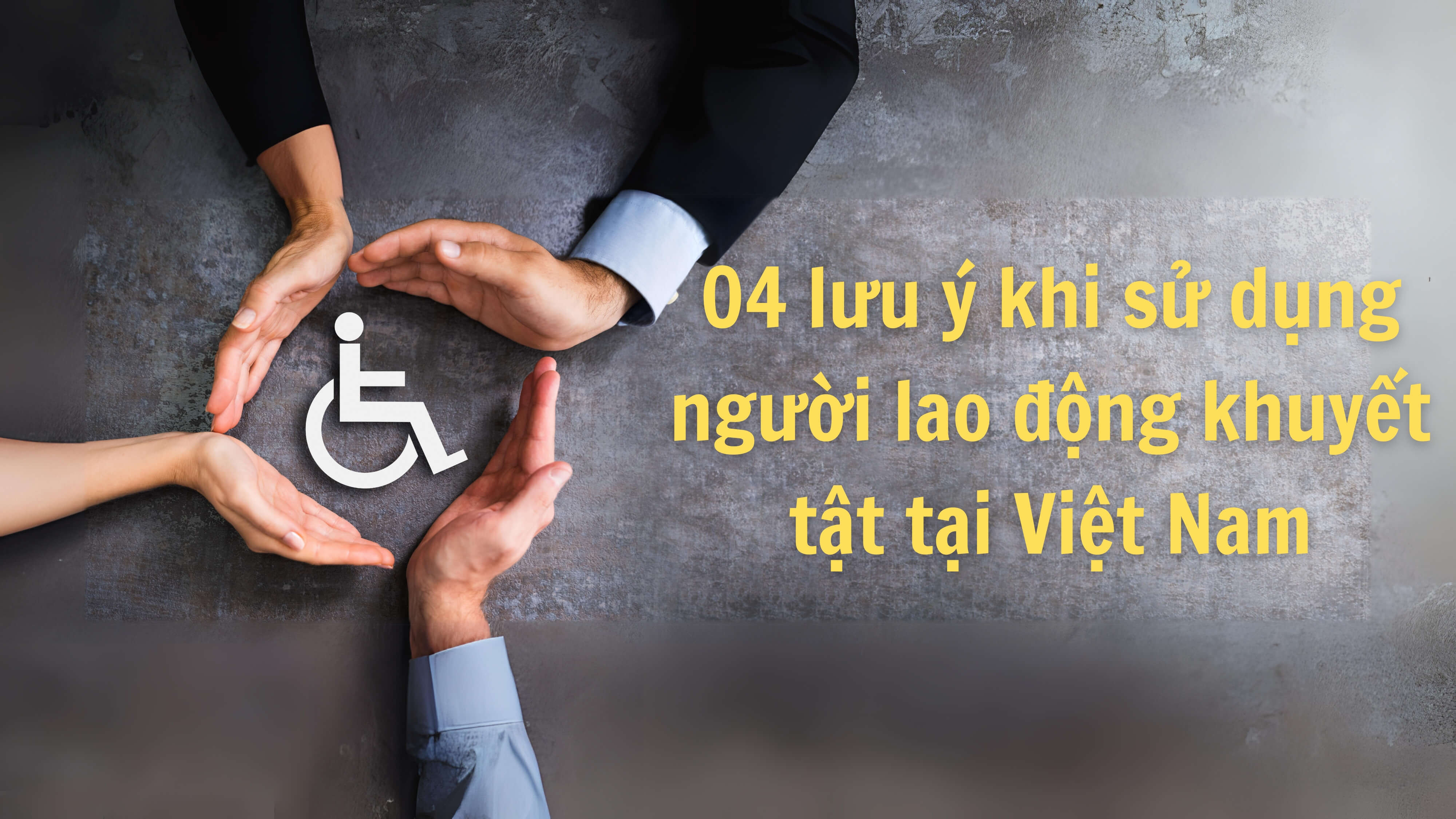

 Luật người khuyết tật 2010 (Bản Pdf)
Luật người khuyết tật 2010 (Bản Pdf)
 Luật người khuyết tật 2010 (Bản Word)
Luật người khuyết tật 2010 (Bản Word)